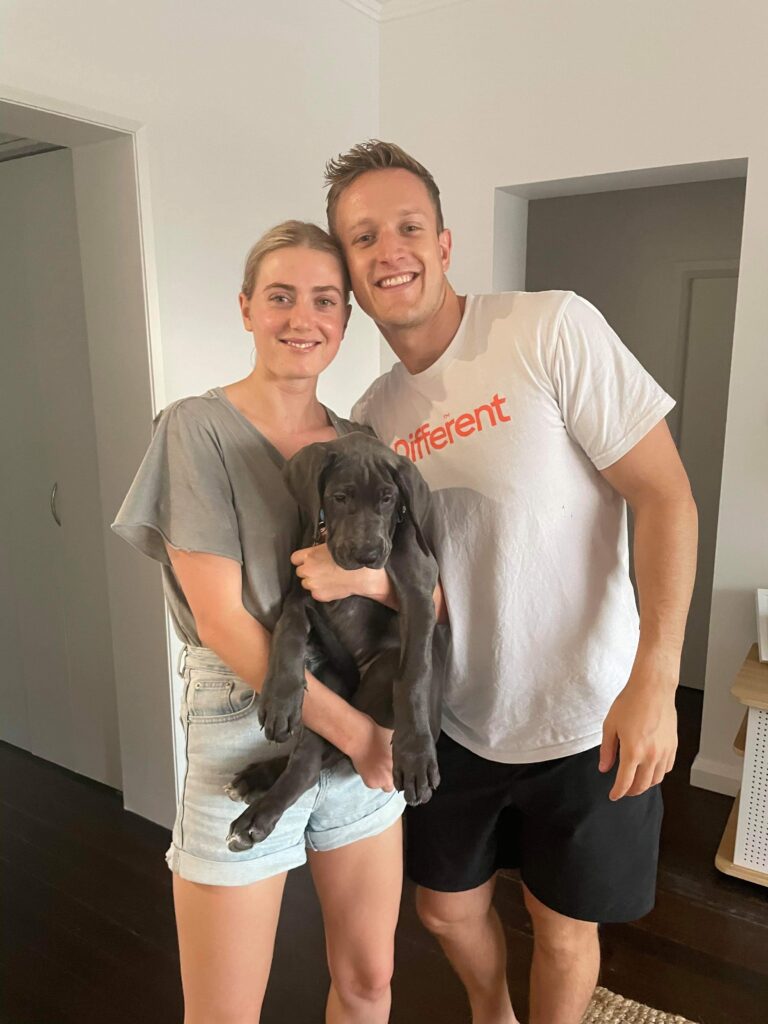Jethro Cohen (Class of 2012)
Posted on October 31, 2024
Jethro Cohen (2012) was convinced he wanted to be a lawyer. A casual job at an Apple store set him on a different path.

Why did you think your future was in law?
All I wanted to do when I was in school was become a lawyer. My dad [Nicholas Cohen] had been a lawyer and although he never applied any pressure, I looked up to him a lot. If you’re a smart kid and you’re not good at science, every adult in your life tells you to be a lawyer.
What changed your mind?
I did a lot of debating in school. [During his IB studies, Jethro was chosen to represent Australia at the The Hague International Model United Nations in the Netherlands, where he won best speaker of 2012]. My dream was to be a lawyer at the United Nations or a diplomat or something to that effect. But when I got to the University of Sydney, I quickly realised I hated studying law. It was forced comprehension. By my third year I had a kind of crisis: what do I do with my life? All I knew was I didn’t want to be a lawyer.

What did you do?
At the time I was fixing computers as a “Genius” at an Apple store. Apple’s founding story is well known but what’s less known is Apple’s capital journey, and their investment from the global venture fund Sequoia Capital. You’d think there would be this incredible financial return for the funds invested in Apple. But Sequoia sold early – they never saw the upside of their investment! This story inspired in me a love for the history of technology in Silicon Valley, and I got obsessed with startups and big tech culture in San Francisco.
What did you do when you realized you wanted a career in tech?
It took me a while to find where to start. I did a year-long cadetship of sorts at PwC in a team looking at how the firm could leverage technology to drive incremental improvements for the consultants and accountants. I liked it but I think traditional, large service businesses are an anathema to innovation, so I joined Uber as an operations and strategy analyst on the launch team of the Eats business. I stayed for three years and ended up leading the pricing strategy for the restaurant side of the business in Australia and New Zealand. Just before Christmas in 2019, I won their Employee of the Year prize. I was on an ultimate high. Then in that same week, my mum [Deborah, an early childhood educator] died unexpectedly. My brother Jasper (2020) was in Year 11 at Friend’; the head of the senior school really helped him through that time. For me, it forced a period of introspection.
What were you thinking about, workwise?
I’d joined Uber at a time where they’d seen enormous investment, and there was so much money floating around to grow the business. We could almost experiment with whatever we liked with very little existential risk. I felt a hunger to work at an earlier-stage business. I joined :Different, a seed-stage startup, and led their operations for two years, always with the goal of finding a way into venture capital. I made the jump to Square Peg three years ago, focussing on AI and SaaS [Software as a Service]. I’m looking for software that’s focussed on a specific industry, for example an automation tool for customer service teams, or a student records system for schools.

When you talk about tech, why are you more excited about Sequoia than Steve Jobs?
Steve Jobs loved personal computing hardware more than anyone who’s ever lived. To be a founder, you must be incredibly passionate and obsessed with one specific thing and spend 80 hours a week for a decade thinking about it. The truth is that throughout my life I’ve never been very interested in any one thing. I’m a person who’s pretty interested in lots and lots and lots of things – I meet with around 500 founders every year. That’s the best thing about being in VC: it’s a job that rewards curiosity across a very large surface area.
